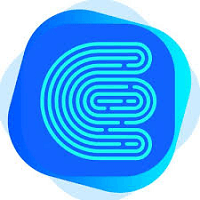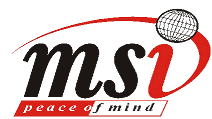Description

Denali

Entryless
Comprehensive Overview: Denali vs Entryless
Denali and Entryless are both software solutions catering to financial management and accounting, albeit with different functionalities and target markets. Here’s a comprehensive overview based on the available information:
a) Primary Functions and Target Markets
Denali
Denali is a comprehensive accounting software solution developed by Cougar Mountain Software. It primarily targets small to mid-sized businesses, nonprofit organizations, and retail operations. The key functions of Denali include:
- General Ledger: Management of financial data with advanced reporting capabilities.
- Accounts Payable and Receivable: Efficiently manage obligations and incoming payments.
- Inventory Management: Track inventory levels, orders, sales, and deliveries.
- Payroll: Process payroll with tax management.
- Point of Sale (POS): For retail environments to manage sales, customer management, and inventory.
- Nonprofit Features: Tools tailored for tracking fund accounting and donations.
Entryless
Entryless focuses on automating the accounts payable process, primarily targeting small to medium-sized enterprises (SMEs) that require streamlined invoice processing. The primary functions include:
- Automated Data Entry: Conversion of scanned invoices into structured data.
- Invoice Processing: Manage, approve, and pay invoices through one platform.
- Integration: Seamless integration with accounting software like Xero, QuickBooks, and Sage.
- Workflow Management: Customize approval workflows to streamline operations.
b) Market Share and User Base
Denali
Denali's market share is relatively small compared to major accounting software providers like QuickBooks and Xero. Its user base tends to be niche, focusing on organizations seeking robust, customizable accounting solutions that are not as expensive or complex as enterprise-level software. The software is particularly popular among nonprofit organizations and retailers.
Entryless
Entryless caters to users who are looking for solutions to alleviate the manual workload involved in managing accounts payable. Its market share is also modest, with a broad user base that enjoys the ease of transitioning from manual invoice processing to an automated system. It serves customers worldwide by integrating with popular accounting systems, making it a versatile solution for SMEs.
c) Key Differentiating Factors
Features and Specialization
- Denali offers a comprehensive suite of accounting functions tailored for various sectors, including robust inventory and nonprofit management features. Its strength lies in its ability to be customized for specific industry needs.
- Entryless specializes in automating the accounts payable process, providing efficiency and reducing human error in invoice management. It does not aim to be a full-fledged accounting system but integrates with one to enhance specific financial workflows.
Target Market and Usability
- Denali is designed for businesses and nonprofits that require more extensive accounting functions and the ability to manage multiple aspects of financial operations. Its features are comprehensive, catering to industries that deal with complex financial processes.
- Entryless targets entities seeking to improve efficiency in invoice processing. Its ease of integration with existing accounting systems makes it a versatile choice for companies looking to reduce overhead and streamline accounts payable without overhauling their entire accounting system.
Implementation and Complexity
- Denali may require more effort in terms of setup and ongoing management but offers extensive training and customer support to assist users in getting the most out of the software.
- Entryless offers a quicker implementation, focusing on simplicity and offering rapid deployment with minimal disruption to existing operations.
Overall, Denali is suited for organizations that need an all-in-one financial management tool, while Entryless is best for businesses looking to automate and gain efficiency in their accounts payable processes. Each has its unique strengths, catering to different operational needs within the broad spectrum of financial management.
Contact Info

Year founded :
1995
Not Available
Not Available
United States
Not Available

Year founded :
2013
+1 888-385-9178
Not Available
United States
http://www.linkedin.com/company/entryless
Feature Similarity Breakdown: Denali, Entryless
Denali and Entryless are both financial management software solutions, but they cater to slightly different needs within the accounting space. Here's a breakdown of their feature similarities and differences:
a) Core Features in Common
Both Denali and Entryless share several core features typical of accounting and financial management software:
-
Accounts Payable Management:
- Both systems offer functionalities for managing accounts payable, such as bill entry and payment processing.
-
Financial Reporting:
- Each platform provides tools for generating financial reports, which are crucial for business analysis and decision-making.
-
Integrations:
- They integrate with other accounting and financial systems to streamline operations and improve data accuracy.
-
Multi-user Access:
- Support for multiple users with varying access levels to ensure security and collaboration within financial departments.
-
Cloud-based Access:
- Both offer cloud-based access, providing flexibility for users to manage finances from anywhere.
b) User Interface Comparison
The user interfaces of Denali and Entryless differ primarily in the following ways:
-
Denali:
- Known for its more traditional accounting software interface, which might be less intuitive for new users but offers detailed insights and controls for those familiar with accounting systems.
- Typically requires some training to navigate effectively due to its comprehensive nature tailored to established accounting practices.
-
Entryless:
- Designed with a more modern and user-friendly interface, aiming to simplify the accounts payable process.
- Focuses on ease of use and automation, making it more accessible for businesses looking to streamline invoicing without delving deep into accounting complexities.
c) Unique Features
Each product has distinct features that differentiate them:
-
Denali:
- Offers comprehensive modules beyond accounts payable, such as inventory management and order processing, making it suitable for businesses that need a complete accounting solution.
- Customizable reporting options and a focus on scalability for growing businesses.
-
Entryless:
- Specializes in automating the accounts payable process through automated invoice data extraction and processing, reducing manual data entry.
- Provides features aimed at simplifying international transactions, offering support for multiple currencies and localization needs.
In summary, while both Denali and Entryless facilitate accounts payable management, Denali is a broader accounting solution with a more traditional interface and comprehensive modules. In contrast, Entryless focuses on automating the invoices and accounts payable process with a user-friendly interface and specific advantages in handling international transactions.
Features

User Experience
Security
Customization

Automated Data Entry
Integration with Accounting Software
Expense Management
Invoice Management
Best Fit Use Cases: Denali, Entryless
Denali and Entryless are both solutions that cater to specific needs within business financial management, but they serve different purposes and target different types of users. Here’s how they fit various use cases:
Denali
a) Types of Businesses or Projects:
Denali is a comprehensive accounting software solution designed for small to medium-sized enterprises (SMEs) that require robust financial management and accounting features. It is well-suited for businesses that need a scalable and flexible accounting solution with advanced features such as inventory management, payroll, and sales tracking.
Best Fit Use Cases:
- Retail and Wholesale: Businesses that need detailed inventory tracking and sales analysis.
- Nonprofits: Organizations requiring fund accounting and financial reporting for grants and donations.
- Manufacturing: SMEs needing to manage complex supply chains and track production costs.
- Professional Services: Companies that require time billing and task tracking integrated with accounting.
d) Industry Verticals or Company Sizes:
Denali serves a variety of industry verticals including retail, wholesale, nonprofit, and manufacturing. It is best for SMEs that require more than basic accounting software and seek scalability. Organizations with multiple departments and the need for granular financial data analysis benefit from its modular design.
Entryless
b) Scenarios for Preferred Use:
Entryless is primarily an accounts payable automation tool designed to streamline and simplify the processing of incoming bills and invoices. It's ideal for businesses that want to reduce the time and errors associated with manual data entry from accounts payable processes.
Best Fit Use Cases:
- Businesses with High Volume of Invoices: Companies that handle a large number of invoices and need to automate data entry to focus on analysis and decision-making.
- Streamlining Accounting Departments: Firms looking to improve the efficiency of their accounting staff by automating repetitive tasks.
- Remote or Distributed Teams: Businesses with accounting teams working remotely, benefiting from digitized invoice processing.
- Integration with Other Platforms: Organizations already using other accounting software that Entryless can integrate with, such as Xero or QuickBooks.
d) Industry Verticals or Company Sizes:
Entryless is suitable across multiple industries, especially those with extensive supplier networks like retail, hospitality, and logistics. It's beneficial for SMBs to larger enterprises looking to leverage automation technologies without overhauling their entire accounting system. Entryless is valued for its simplicity and ease of integration, making it effective for any company size that wants to optimize its accounts payable process.
By addressing distinct aspects of financial management—Denali with full-scale accounting needs and Entryless with AP automation—each product caters to specific operational goals within various business environments.
Pricing

Pricing Not Available

Pricing Not Available
Metrics History
Metrics History
Comparing teamSize across companies
Conclusion & Final Verdict: Denali vs Entryless
To provide a conclusion and final verdict for Denali and Entryless, let's evaluate both products based on the provided criteria and common considerations for business software.
a) Best Overall Value
Considering all factors typically involved in accounting and business operation software, the best overall value will depend on the specific needs of the business. If an organization prioritizes comprehensive on-premise accounting features with scalable modules, Denali by Cougar Mountain Software might offer more value. However, if a company desires a cloud-based solution designed for automating the accounts payable process, Entryless could be the superior choice.
b) Pros and Cons
Denali (by Cougar Mountain Software):
Pros:
- Comprehensive Accounting Features: Denali offers a range of modules for different aspects of accounting, including general ledger, accounts payable, accounts receivable, and inventory management.
- Scalability: Suitable for businesses expecting growth, as additional modules can be added to expand its capabilities.
- Customizability: Options for tailored workflows and reporting, allowing businesses to tailor the software to their specific needs.
- On-Premise Deployment: Ideal for businesses that prefer local data control and require minimal reliance on internet connectivity.
Cons:
- Complexity and Learning Curve: May require more time and resources for training and full utilization.
- Higher Initial Costs: Often comes with significant setup and licensing fees compared to cloud-based solutions.
- Updates and Maintenance: Responsibility for managing software updates and system maintenance falls on the user.
Entryless:
Pros:
- Automation of Accounts Payable: Streamlines invoice processing and reduces manual data entry, leading to time savings and error reduction.
- Cloud-Based Flexibility: Ease of access from anywhere with internet connectivity, facilitating remote work and collaboration.
- Integration Capabilities: Often integrates with various accounting software solutions, enhancing its utility in existing tech stacks.
- Cost-Effective for Small Businesses: Typically lower upfront costs compared to on-premise solutions.
Cons:
- Limited to Accounts Payable: Primarily focuses on AP automation, lacking comprehensive accounting features.
- Dependency on Internet: Requires consistent internet access for full functionality.
- Potential for Integration Issues: May encounter challenges or limitations when integrating with certain accounting platforms.
c) Recommendations
-
Assess Business Needs:
- For businesses requiring a full suite of accounting features and locally hosted software, Denali may be the better option.
- For companies emphasizing efficiency in invoice processing and looking for a cloud-based Accounts Payable solution, Entryless would be more suitable.
-
Consider Future Growth:
- Choose Denali if you anticipate needing additional modules and comprehensive accounting capabilities as your business grows.
- Opt for Entryless if your primary focus is streamlining and automating accounts payable processes with the ability to adapt your software stack flexibly.
-
Evaluate Resource Availability:
- If your organization has the resources to handle on-premise software setup and maintenance, Denali presents a robust choice.
- For smaller businesses or those with limited IT resources, the ease and low maintenance nature of Entryless may prove advantageous.
Ultimately, the decision should be driven by a careful assessment of the specific requirements, resources, and long-term strategy of the business.
Add to compare
Add similar companies



